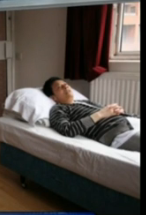Grave accidents in Zhengzhou is 6.4% total in China
Grave accidents in Xinmi is 4.3% total in China
十二、河南省(4起)4 grave work safety accidents in Henan
19. "2.28" grave road traffic accident in Xinmi City, Zhengzhou of Henan
20. "3.15 "Xinmi city Dongxing coal mine fire accident in Zhengzhou of Henan
21. "4.22" Gas explosion coal mine accident of Xingdong No.2 coal mine of Weidong district of Pingdingshan city of Henan [Where is corrupt senior communist official: Mr.Tuiechui ZHAO's (head of coal mine work safety administration Bureau)hometown].I hold evidence about his corruption.
22. "8.2" grave accident about gas explosion of SanYuanDong coal mine of Dengfeng of Zheng Coal Group Co. Ltd of Henan
19.河南省郑州市新密市“2・28”重大道路交通事故。
20.河南省郑州市新密市东兴煤业有限公司“3・15”重大火灾事故。
21.河南省平顶山市卫东区兴东二矿“4・22”重大瓦斯爆炸事故。
22.河南省郑州煤业集团公司登封公司三元东煤矿“8・2”重大煤与瓦斯突出事故。
Xinhua Beijing on September 8 (Xinhua Zhu Liyi) SAWS spokesman Huang Yi, 8, said the safety committee by the State Council formulated and promulgated the "Measures supervise the handling of major incidents," has been recently implemented. According to this approach, the State Council Office of the first announcement to the public safety committee this year, 47 serious accidents since the list.
Huang Yi, said, "The State Council on Further Strengthening the Work of Safety in Production," clearly states that "the implementation of the State Department major accident investigation committee supervise the handling of production safety." To this end, the State Council formulated and promulgated a safety committee "means supervise the handling of major incidents", and supervise the handling of the process, matter, content, publicity and accountability and so explicitly.
Under this approach, the State Council's security committee on the investigation and handling of major incidents, supervise the handling of the implementation of the State Council, the Office of Safety Authority undertake supervise the handling of specific matters. The provincial government is responsible for implementing supervise the handling of the matter, the provincial government offices to take specific charge of the security committee of major accidents supervise the handling of administrative matters within the comprehensive work.
provincial government received supervise the handling of the notification, should be based on relevant regulations, organizations and urge the relevant functional departments in accordance with the supervision of the notice requirement for the following: do the accident aftermath; finding out the causes, identify the nature of the accident ; distinguish responsible for the accident, put forward the views of persons responsible for handling; economic punishment according to law; the formation of accident investigation reports; monitoring the implementation of accident prevention and corrective measures. Provincial People's Government shall supervise the handling of receiving the notice within 60 days from the date of completion of supervision issues.
this approach provides a major accident investigation closed the case, the provincial People's Government Security Committee Security Committee and the State Department's Office shall supervise the handling of cases of major accidents and accident investigation cases closed in the central mainstream media and the central site China Work Safety News, Safety Supervision Administration Web site to be announced, to accept social supervision.
based on this approach, the State Council Office of the first announcement to the public safety committee this year has been 47 serious accidents related to the list, the distribution of these major accidents in the country's 23 provinces.
State Administration of Safety Supervision, Ministry of Supervision Central Discipline Inspection Commission also announced the same day, Xinhua District 4 Pingdingshan mine, "9.8" particularly serious gas explosion in Henan mine Pingdingshan Weidong Qu Hing Tung 2 "6.21" incident particularly important Explosives, Xiangtan City, Hunan Province, Xiangtan County wins mine "1.5" major fire accidents in particular three special results of the investigation and handling of major incidents, three incidents were a total of 176 persons responsible for handling .
SAWS spokesman Huang Yi, said it three after the accident, the accident investigation team composed of the State Council promptly investigated. The investigation, three accidents are accidents, leaving a total of 159 miners died in the direct economic loss more than 8750 million. State Department Accident Investigation Unit report has been submitted by the State Council approved, SAWS has been the province where the accident occurred were



